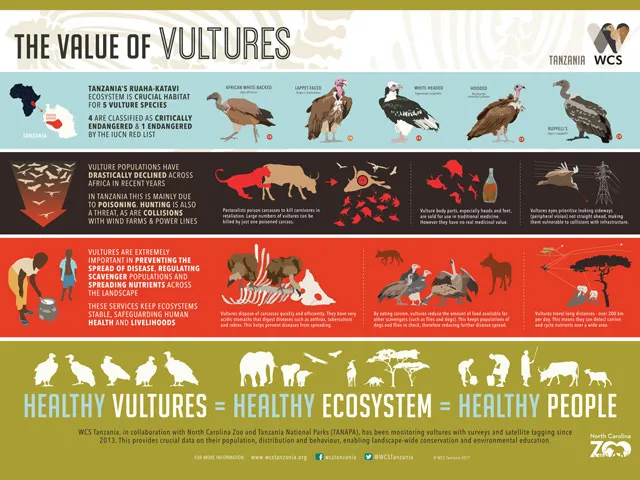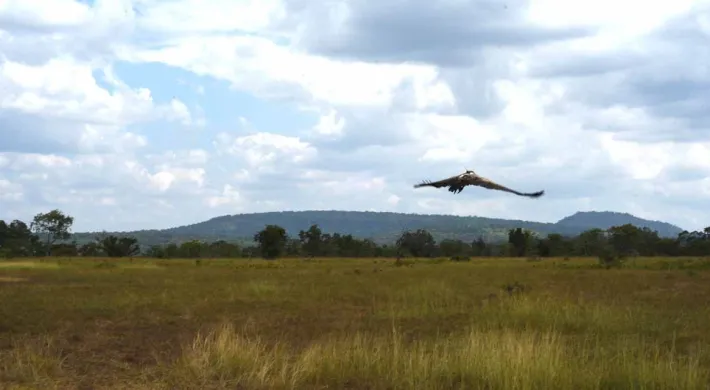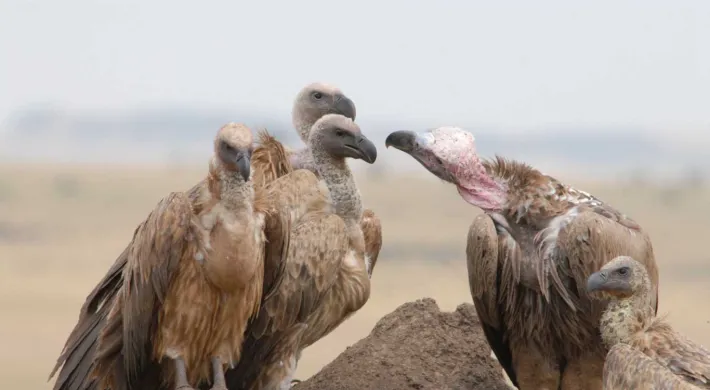Written by Corinne Kendal, PhD, Curator of Conservation & Research, North Carolina Zoo
Since 2013, the Southern Tanzania Vulture Monitoring and Conservation program, a partnership between North Carolina Zoo and Wildlife Conservation Society, has been addressing the threat of poisoning and poaching to vultures and other wildlife, building capacity for rapid poison response amongst rangers, and generating new knowledge about the state of Tanzania’s vultures. This project was recently recognized by the Association of Zoos and Aquariums and awarded the 2020 William G. Conway International Conservation Award of Significant Achievement. This is the fifth time the Zoo has been honored for our efforts in conservation, having also won two conservation awards in 2018 for our anti-poaching efforts in Namibia and around the world, in 2015 for our work on Cross River gorillas, and in 2008 for our elephant collaring work. It is truly exciting to once again celebrate in the conservation efforts, and success, of North Carolina Zoo.
Our southern Tanzania vulture project has made great strides in addressing threats to vultures in the important ecosystems. The primary threat to vulture conservation is poisoning, often motivated by retaliatory killing of carnivores that predate people’s livestock, as well as direct targeting of vultures by elephant poachers in countries such as Botswana, who recognize that rangers use vultures to find dead elephants. Our program works across critical habitats for vultures and other wildlife, particularly Ruaha-Katavi landscape, a vast and remote 100,000km2 network of protected areas and more recently on Selous Game Reserve (now Nyerere National Park), one of the largest protected areas in Africa. Our landscape level approach to conservation and novel developments of real-time techniques for understanding vulture movement has ensured a future for vultures in southern Tanzania while also utilizing vultures to find and address key threats such as poisoning.

To date, we have tagged 45 vultures in southern Tanzania and discovered and addressed four poisoning incidents. Rapid aerial follow-ups of vulture identified areas of concern have enabled a streamlined approach to focus law enforcement efforts. By providing training to 140 rangers on rapid response to poisoning events, we have ensured more effective response to poisoning cases, including arrests of perpetrators and as a result, have had no poisoning in the Ruaha-Katavi landscape in the last 28 months. Our monitoring efforts have provided the first systematic data confirming southern Tanzania as a stronghold for African vultures and have demonstrated the relative stability of the Ruaha-Katavi vulture population since beginning of our project. While our efforts have been critical for the conservation of Tanzania’s vultures, they also have wider conservation implications for other highly threatened species, such as lion and elephant. This project has also played a substantial role in AZA’s African Vulture SAFE program as one of the four flagship efforts helping us reduce threats to these critically endangered birds.





